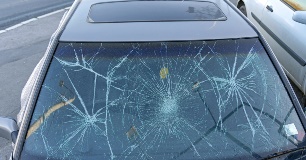Proud Sponsor of Aon’s Property Symposium

Proud Sponsor of Aon’s Property Symposium

Property insurance that delivers
a distinct advantage.
Why Amwins?
 Expertise
Expertise
 Collaboration
Collaboration
 Exclusive capacity & products
Exclusive capacity & products
Let's talk about how we can partner for your success.
For account questions or submissions, reach you to your current Amwins broker or Melanie Alberico, Client Relationship Manager, at 312.601.9388 or melanie.alberico@amwins.com.
Market insights from Amwins
Our insight on emerging issues and trends in the property marketplace gives you an advantage with your clients and helps you prepare them for what lies ahead.
Helping Auto Dealers Weather the Barrage of Storm-Chasers
Identifying Fly-by-Night Contractors Protects Against Insurance Fraud
The National Oceanic and Atmospheric Administration (NOAA) has forecast an above-average hurricane season for 2022 with most storms projected to hit during peak hurricane season from now (Aug.) through Oct.
This season is expected to bring 14 to 21 named storms and three to six of those will likely turn into major hurricanes (storms with winds of 111 mph), according to NOAA.
That’s not great news for auto dealers in storm-prone areas, but one way they can prepare for this season is to review how dealers faired in previous storm seasons.
The hurricane seasons of 2020 and 2021 saw record-breaking storms leaving billions of dollars in damages in their wake. Auto dealers in storms’ paths not only faced auto damage from severe wind and hail, but also found themselves (and their limited inventory) under water in flood zones.
Damaged auto inventory is always a cause for concern, but with ongoing supply chain issues and chip shortages, dealers today are especially motivated to recover and repair their small inventory as soon as possible so the autos can be sold.
Arriving unbidden in the aftermath of these storms, and often promising enhanced settlements, increasing numbers of auto repair contractors (e.g., paintless dent repair) come offering quick fixes that can put dealers at risk of committing insurance fraud.
The good news is agents and brokers can help keep their clients safe from fraudsters in several ways:
Build a solid trusting relationship. You are an important representative for the insurance industry. If your clients trust you, they are more likely to consider you (and by extension their insurance carrier) an asset in a crisis.
Help clients identify shady contractors. Fraudsters come in all shapes and sizes with various scam techniques, but they do have some common red flags.
Educate clients about the claims process. Engage quickly with clients on weather losses and guide them with claims procedures. Clients who understand the process will feel more confident in their ability to file a claim directly with the insurance company and will know what they can expect next.
This article will cover tips to help your insureds identify unscrupulous contractors and best practices to help them get back on their feet as soon as possible.
Identifying and Avoiding Fraudsters
One of the most vulnerable times for any insured is in the immediate aftermath of a storm when they are surveying property damages and trying to make temporary repairs to prevent additional losses. The process can feel overwhelming, and that’s when fraudsters descend to offer a helping hand.
The story might go something like this:
A previously unknown contractor will approach a general manager, or somebody with authority, and offer to help the dealer “prepare all autos for inspection by the insurance company” in exchange for 15% of the insurance settlement.
The contractor will assert that he/she is on the insured’s side and might present the insurance carrier as an adversary in the claims process, saying something like, “Look, we’re here for you. We’re looking at this damage and we can get these cars ready. The insurance company is going to try to shortchange you—we can make sure you get top dollar.”
And in that moment, staring at a lot full of hail damaged vehicles, it can be tempting to take the help being offered…not realizing until later that the contractor is engaged in insurance fraud.
Red Flags That a Contractor Might Be a Fraud
A major tip off to potential fraud is how the contractor plans to get paid the 15% fee from the insurance settlement. It’s customary for some professional services to work on contingency fees (attorneys, for example), where the fee is deducted from the damage re-imbursement.
If the contractor promises, however, to get a larger settlement to cover both the damage losses and his/her fees, that is when it becomes fraudulent. It is illegal to inflate the damages reported to the insurance company. Property insurance is intended to cover damages and get the client whole again, not whole + 15%.
Other triggers for identifying potential vendor fraud are contractor assurances to:
- Stage the vehicles
- Present the losses to the insurance carrier
- Protect the client from the insurance company
While some legitimate contractors might engage in “storm-chasing” tactics to remain competitive in their region, insureds should be leery of any unknown contractor who arrives at their site unsolicited.
Insureds should also be careful with any unknown contractor who:
- Handles all business in person, avoiding anything in writing
- Asks for insurance checks to be endorsed to them
- Is not able or willing to provide references
- Does not have a contractor’s license bond
- Won’t provide a certificate of insurance for general liability or workers compensation;
- Provides a very general estimate with no scope of work or bids far below other contractors
One of the best ways for your clients to avoid being party to insurance fraud, however, is to immediately contact their insurer and work directly with the insurance adjuster to report losses, file claims, and get help finding repair vendors.
Not all repair vendors should be considered questionable. Often, credible repair vendors are encouraged to be part of the claim discussion to confirm “scope of damage.
Claims Process Education
Your clients’ insurance policies likely contain contact information and instructions for making a claim, but don’t assume that clients will familiarize themselves with the details. Go over that part of the policy with the insureds so they know what to expect in the event of a claim.
It can also help to provide clients with additional resources like this Amwins Claims Checklist for Severe Weather Damage. It reminds insureds of important steps, like photographing damaged areas before making temporary repairs, and it warns against potentially fraudulent unlicensed public adjusters.
Filing a claim has a lot of moving parts and any proactive guidance you can provide will help make the process easier for your clients.
Takeaway
As severe weather events continue to increase in intensity and frequency, the related damage losses will, no doubt, give rise to more scammers trying to take advantage of others’ misfortune. You can help your insureds avoid con artists by building trust in insurers, showing them how to identify fraudsters and making it easy for them to file insurance claims.
DealerGuard, an Amwins Program Underwriters program, focuses exclusively on automotive exposure and its in-house claims handling insures prompt loss settlement for your clients. Contact your Amwins representative today to learn more about coverage options.
This article was written by Matthew Cermak, SVP, Amwins Program Underwriters.
- auto dealer
- dealerguard
- Auto Dealers
- Property & Casualty
- Transportation
- Property & Casualty
- Transportation
- Revved Storm Losses Drive Auto Dealers’ Insurance Needs
- Protecting Auto Dealer’s Shrinking Inventories During Hail Season
- 10 Catastrophe Claim Tips for Severe Weather Season
- Home Health Care Agencies Can Avoid Insurance Blame Game with Auto Liability Coverage & Risk Management
- Convective Storm and Expanded Weather Deductibles

